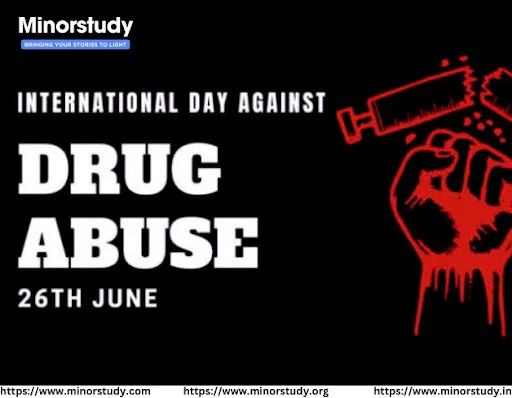**History:**
The International Day against Drug Abuse and Illicit Trafficking, also known as World Drug Day, is observed annually on June 26th. It was established by the United Nations General Assembly in 1987 with Resolution 42/112. The day aims to strengthen action and cooperation to achieve the goal of an international society free of drug abuse.
**Significance:**
- **Awareness:** Raises awareness about the major problem that illicit drugs represent to society.
- **Prevention:** Promotes measures to prevent drug abuse and encourages people to avoid illicit drugs.
- **Support:** Provides support for drug abuse prevention and rehabilitation programs.
- **Global Cooperation:** Encourages international cooperation to combat drug abuse and illicit trafficking.
**Important to Society:**
- **Public Health:** Addresses the health consequences of drug abuse, including addiction, disease transmission, and mental health issues.
- **Crime Reduction:** Aims to reduce the crime associated with drug trafficking and abuse.
- **Youth Protection:** Focuses on protecting young people from the dangers of drug abuse and providing them with healthy alternatives.
- **Policy Development:** Promotes the development of comprehensive drug policies that balance prevention, treatment, and enforcement.
**Timeline:**
- **1987:** The UN General Assembly establishes June 26th as the International Day against Drug Abuse and Illicit Trafficking.
- **Since 1987:** Annual observance with various themes and campaigns focusing on different aspects of drug abuse and trafficking.
**Facts:**
- **Global Issue:** Drug abuse and illicit trafficking are global issues that affect millions of people.
- **Health Impact:** Drug abuse contributes to a range of health problems, including overdoses, HIV/AIDS, and hepatitis.
- **Economic Cost:** The economic cost of drug abuse includes healthcare, lost productivity, and law enforcement expenses.
- **UNODC Role:** The United Nations Office on Drugs and Crime (UNODC) plays a key role in coordinating international efforts to combat drug abuse and trafficking.
**FAQs:**
1. **What is the International Day against Drug Abuse and Illicit Trafficking?**
- A day designated by the UN to raise awareness about drug abuse and illicit trafficking and promote measures to combat these issues.
2. **When is it observed?**
- June 26th every year.
3. **Why is this day important?**
- It highlights the dangers of drug abuse, supports preventive and rehabilitative measures, and promotes international cooperation against drug trafficking.
4. **How can people participate in the observance?**
- By spreading awareness, participating in community events, supporting drug prevention programs, and advocating for policies that address drug abuse and trafficking.
5. **What are the common themes addressed on this day?**
- Past themes have included health, youth protection, treatment and care, and the promotion of drug-free communities.
**Wishing:**
- **Simple Wishes:** "Together, let's combat drug abuse and illicit trafficking. Happy International Day against Drug Abuse and Illicit Trafficking!"
- **Awareness Wishes:** "Raise your voice against drug abuse and illicit trafficking. Let's create a healthier world. Happy International Day against Drug Abuse and Illicit Trafficking!"
- **Supportive Wishes:** "Support prevention, treatment, and recovery. Stand united against drug abuse. Happy International Day against Drug Abuse and Illicit Trafficking!"
International Day against Drug Abuse and Illicit Trafficking is a vital observance that promotes global awareness, prevention, and cooperation to tackle the challenges posed by drug abuse and illicit trafficking, aiming to create healthier and safer communities worldwide.













